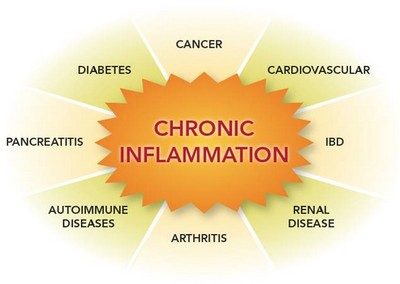

Systemic or Metabolic Enzymes
By Dr. Mercola M.D. (excerpts)
 Besides digestive enzyme supplementation, there is another way to use oral enzymes—for systemic use. This requires taking specific enzymes between meals so they can be absorbed through your gut and into your bloodstream, where your cells can use them metabolically.
Besides digestive enzyme supplementation, there is another way to use oral enzymes—for systemic use. This requires taking specific enzymes between meals so they can be absorbed through your gut and into your bloodstream, where your cells can use them metabolically.
Metabolic enzymes are intimately involved with running your circulatory, lymphatic, cardiac, neurologic, endocrine, renal, hepatic, and reproductive systems, and maintaining your skin, bones, joints, muscles and other tissues.
Getting enzymes from your digestive tract into your bloodstream isn't as easy as it would seem. As I have already discussed, enzymes are very susceptible to denaturing and must be helped to survive the highly acidic environment in your stomach. They are often given an "enteric coating" to help them survive the journey through your digestive tract. And then, there is the matter of absorption.
For nearly 100 years, medical dogma insisted that enzymes taken orally were too large to pass through the digestive tract wall. However, there is now a good deal of research that they can indeed pass through your intestine intact and into your bloodstream and lymphatic system, where they can deliver their services to the rest of your body... one of the mysteries of medical science.
Now that we know this is possible, systemic oral enzymes have been used to treat problems ranging from sports injuries to arthritis to heart disease and cancer, particularly in European countries. But most of the research has been published in non-English language journals.
This systemic use of enzymes is just now taking off in the United States.
It is crucial that, in order for enzymes to be used systemically, they must be ingested on an empty stomach. Otherwise, your body will use them for digesting your food, instead of being absorbed into the blood and doing their work there.
Let's take a look at how systemic enzymes can benefit your health by examining their applications for two major health problems we face today: heart disease and cancer.
It is now fairly well recognized that heart attacks and strokes are related to inflammation, which is why C-reactive protein (an inflammatory marker) can be predictive of cardiac events.
However, according to an excellent article about systemic enzymes by Michael Sellar, French researchers have proposed that bacteria might be a causative factor in coronary artery disease. Very high levels of bacteria were found in their patients' arterial plaques, possibly explaining elevations in C-reactive protein.
C-reactive protein functions to stop the spread of bacteria in your body.
Since enzymes inhibit platelet aggregation, help your immune system combat pathogens, and break down fibrin (which makes up clots), they may offer significant benefits for vascular diseases like thrombosis, phlebitis, and varicose veins.
Sellar quotes enzyme researcher Rudolph Kunze:
"Although enzymes reduce inflammation and we used to think that was all they did, we now believe that the central target of systemic enzymes is the immune system. It is my belief that heart disease is an immune disease very much, although obviously not totally, related to bacterial pathogens and other invaders."
|
The use of enzymes to treat cancer has its roots all the way back to 1911 with John Beard's The Enzyme Treatment of Cancer and Its Scientific Basis. Beard believed cancer was a result of diminished pancreatic enzymes, impairing your immune response.
A study in 1999 suggests he may have been right on target.
Ten patients with inoperable pancreatic cancer were treated with large doses of oral pancreatic enzymes (along with detoxification and an organic diet), and their survival rates were 3 to 4 times higher than patients receiving conventional treatment. Proteolytic enzymes can be helpful in treating cancer because they help restore balance to your immune system.
Dr. Nick Gonzalez in New York City, NY has also done a lot of work on enzymes in cancer treatment and has written a book on the subject.
Some of the ways proteolytic enzymes can be helpful in the fight against cancer are:
Hopefully you can now appreciate just how important enzymes are to your overall health, right down to the cellular level.
|